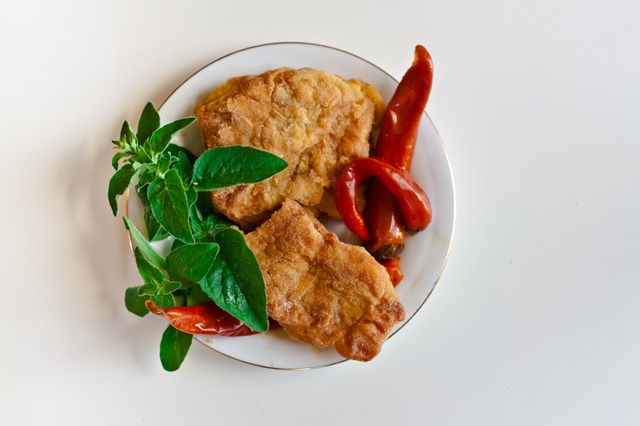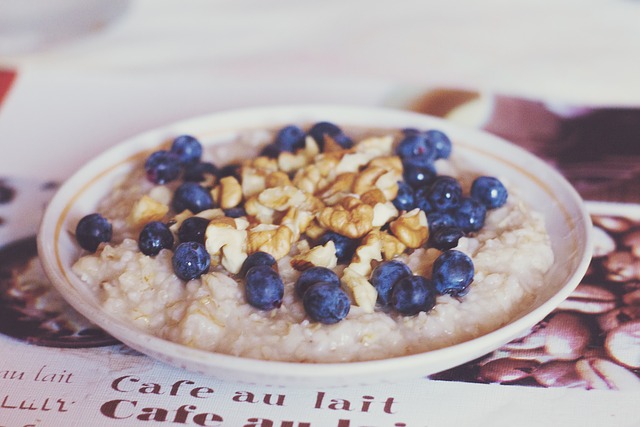We all have most likely experienced heartburn at one point or another, but gastroesophageal reflux disease (GERD) is frequent acid reflux that can be very painful to live with. When we eat or drink, the lower esophageal sphincter relaxes and allows food/drink to flow down into the stomach. Then, the sphincter closes again. If this valve weakens or relaxes, stomach acid can flow back up into the esophagus causing GERD symptoms.
Treatment for GERD may include medications, but there are some diet and lifestyle changes that can help alleviate symptoms. This doesn’t mean that you have to eliminate all of your favorite foods! Take a look at the tips below and pick a few of the items to make small modifications to your typical routine.
Foods To Avoid:
- Fried or Fatty Foods- Avoid fried items or full-fat products. For example, skip the french fries and opt for a baked potato. Instead of whole milk, try 1% or Skim Plus. Stay away from processed meats and choose grilled chicken or turkey breast.
- Acidic Foods- Some foods that are known to exacerbate GERD include oranges, lemons, limes, grapefruit, pineapple, salsa, tomatoes, and even tomato sauce. Try to keep these to a minimum in the diet, or at least reduce your consumption of them on a daily basis.
- Chocolate- This is a tough one! Chocolate is such a comforting food, but does contain an ingredient called methyxanthine that has been shown to relax the lower esophageal sphincter. Keep this to a minimum, and opt for non-chocolate desserts when dining out.
- Spicy Foods– Stay away from those spicy menu items! Ask for mild or medium levels of spice if you really are craving that spicy kick.
- Caffeine & Carbonated Beverages- Do you notice acid reflux symptoms after you drink your morning coffee? This is often the hardest item on the list to quit, but reducing your consumption of caffeine can make a difference in your symptoms. Carbonated beverages are known to exacerbate symptoms as well. Some better options include decaffeinated herbal teas and good old H2O!
- Mint- Products that are made with mint or mint flavoring can trigger GERD symptoms. Avoid mint chewing gum and breath-mints; look for gum that isn’t peppermint or spearmint flavored.
- Alcohol- This is a known irritant that can weaken the lower esophageal sphincter. Pay attention to how your body reacts after one drink, as some people are able to tolerate alcohol in small amounts.
Foods To Choose:
- Oatmeal- This healthy breakfast option is an excellent source of fiber. Oatmeal can actually absorb acid in the stomach and reduce reflux symptoms. Other high-fiber options include whole grain breads or brown rice.
- Non-Citrus Fruits- Stick to fruits such as melons, bananas, apples, and pears. Be sure to chew these fruits thoroughly to assist in proper digestion.
- Lean Meats & Egg Whites- Choose lean meats such as chicken, turkey, fish, and lean beef. Go for grilled, broiled, baked, or poached methods of cooking for low-fat options to reduce GERD symptoms.
- Healthy Fats- By reducing your intake of saturated and trans fats, you will limit your consumption of fried and greasy foods. Instead, opt for healthier fats such as avocados, walnuts, flaxseeds, and olive oil.
Try to keep yourself sitting upright for at least two hours after eating, and avoid eating three hours before bed. Eat sensibly and thoroughly chew your food, as overeating can exacerbate symptoms. You can also raise the head of your bed by 4 to 6 inches to reduce reflux while you are sleeping. Try out some of these tips and incorporate them into your routine as much as you think is manageable!



